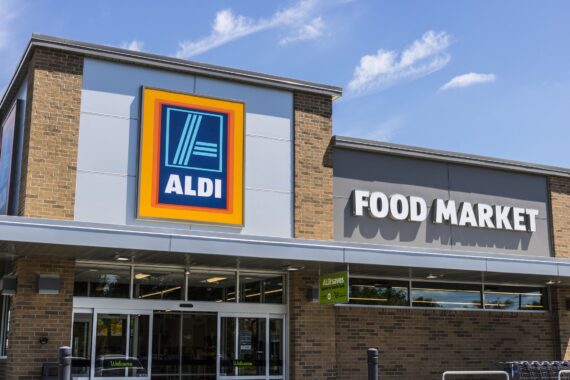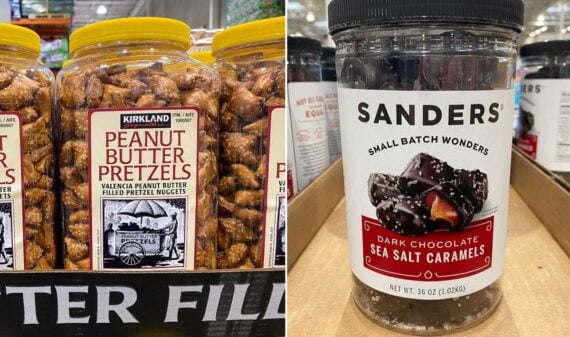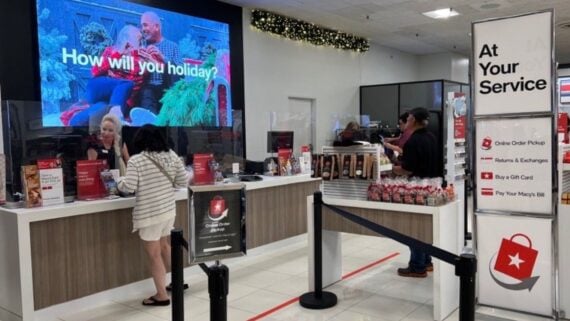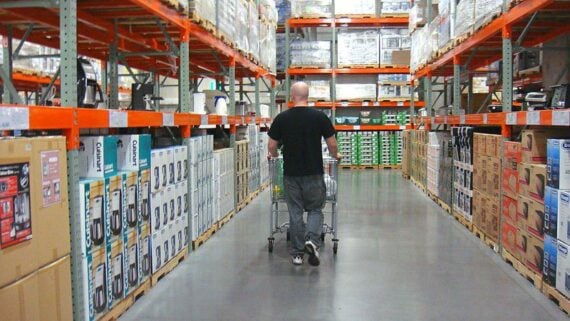The soaring cost of living has blown up household budgets, and groceries are often the last item that hurts the most. Stocking a healthy pantry feels daunting when staples like milk, eggs, and produce inch higher every week.
While meal planning, sticking to a strict list, and batch-cooking all help, your biggest savings come from choosing the right store. This guide highlights the most adorable grocery chains in the United States and what sets them apart, from no-frills discounters to membership warehouses.
If you’re serious about stretching every dollar, these are the markets that make it possible to shop smart without compromising on quality.
Aldi
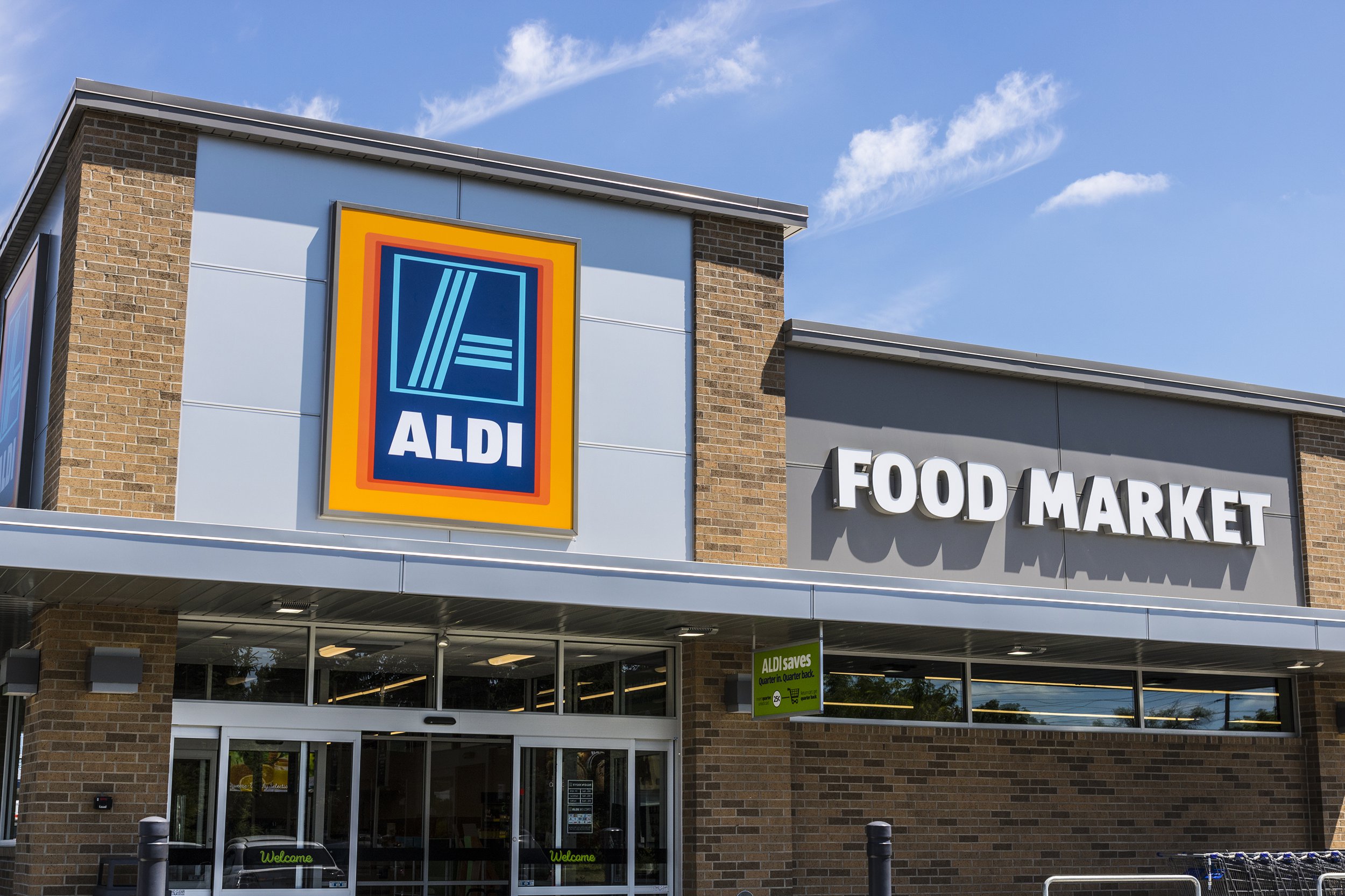
No grocery store in the country compares to Aldi for the price-to-quality ratio. The German grocer dates back over a century, but it opened its doors in the United States for the first time in 1976 and has since expanded to more than 2,400 locations in 38 states.
Ald’s secret is its simplicity: nearly 90% of its products carry the store’s own label, most items sit on pallets instead of fancy shelves, and shoppers bag their own groceries.
These efficiencies, plus a plan to open over 225 new stores in 2025, make Aldi one of the country’s most budget-friendly grocery chains.
Pros: Everyday low pricing, quick in-and-out shopping, and a surprisingly robust selection of wine, cheese, and seasonal “Aldi Finds.”
Cons: The limited assortment means you won’t find every brand or specialty item, and there’s no loyalty program.
Good for: Shoppers who value low prices over brand variety and who don’t mind bagging their own groceries.
Costco
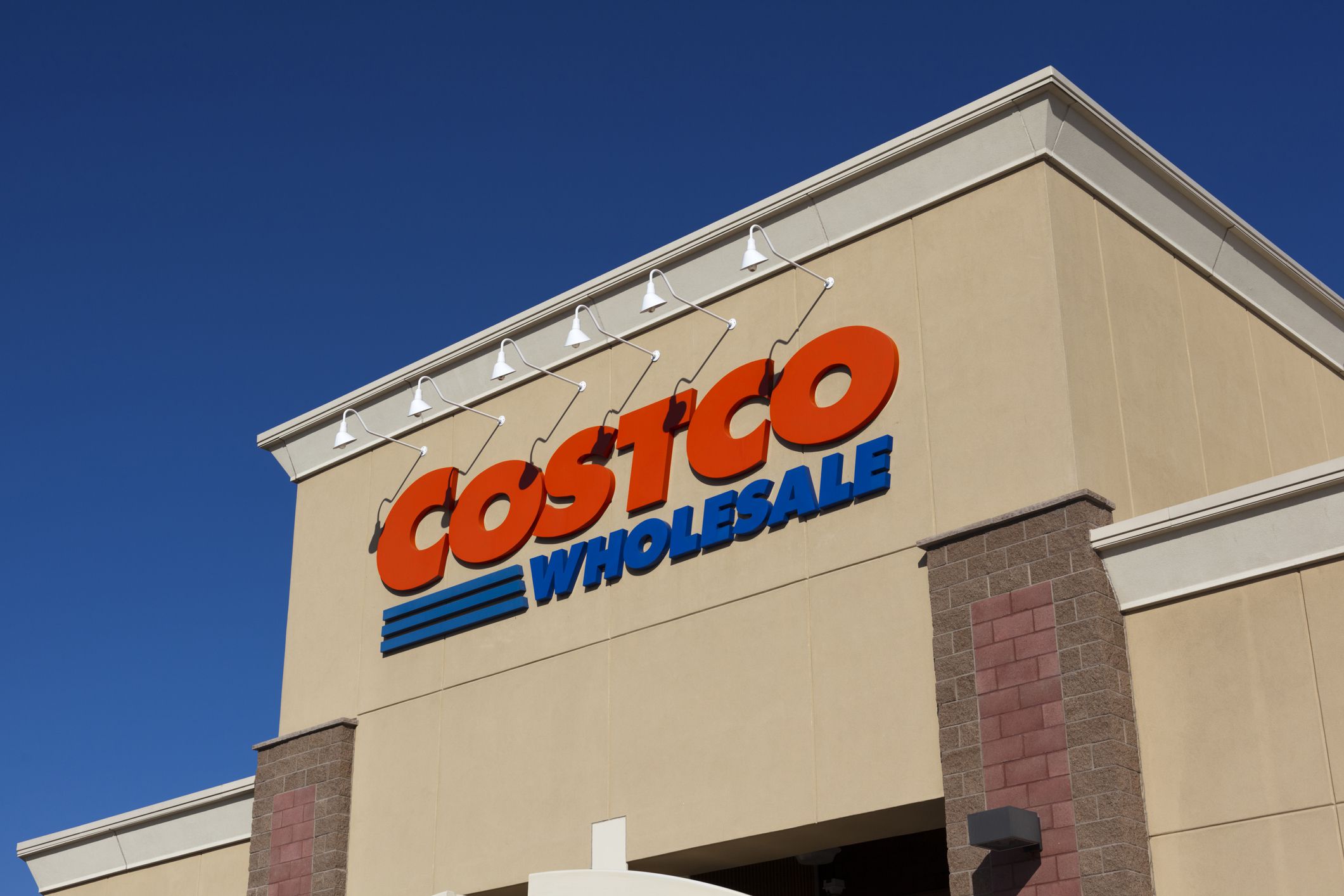
Costco is the original “bigger is better” grocer. Membership stats at $65 a year for a Gold Star card and $130 for the Executive tier, and those fees (about 1.9% of Costco’s 2023 sales) help keep product margins razor-thin.
The bulk boxes of Kirkland Signature products often beat supermarket prices, but you’ll need storage space and discipline to avoid impulse buys.
Pros: Huge per-unit savings on meat, dairy, cleaning supplies, and electronics; generous return policy; discounted gas at many locations.
Cons: Annual membership cost, and bulk sizing isn’t practical for small households.
Good For: Large families, meal-preppers, and bargain hunters willing to buy in bulk.
Sam’s Club
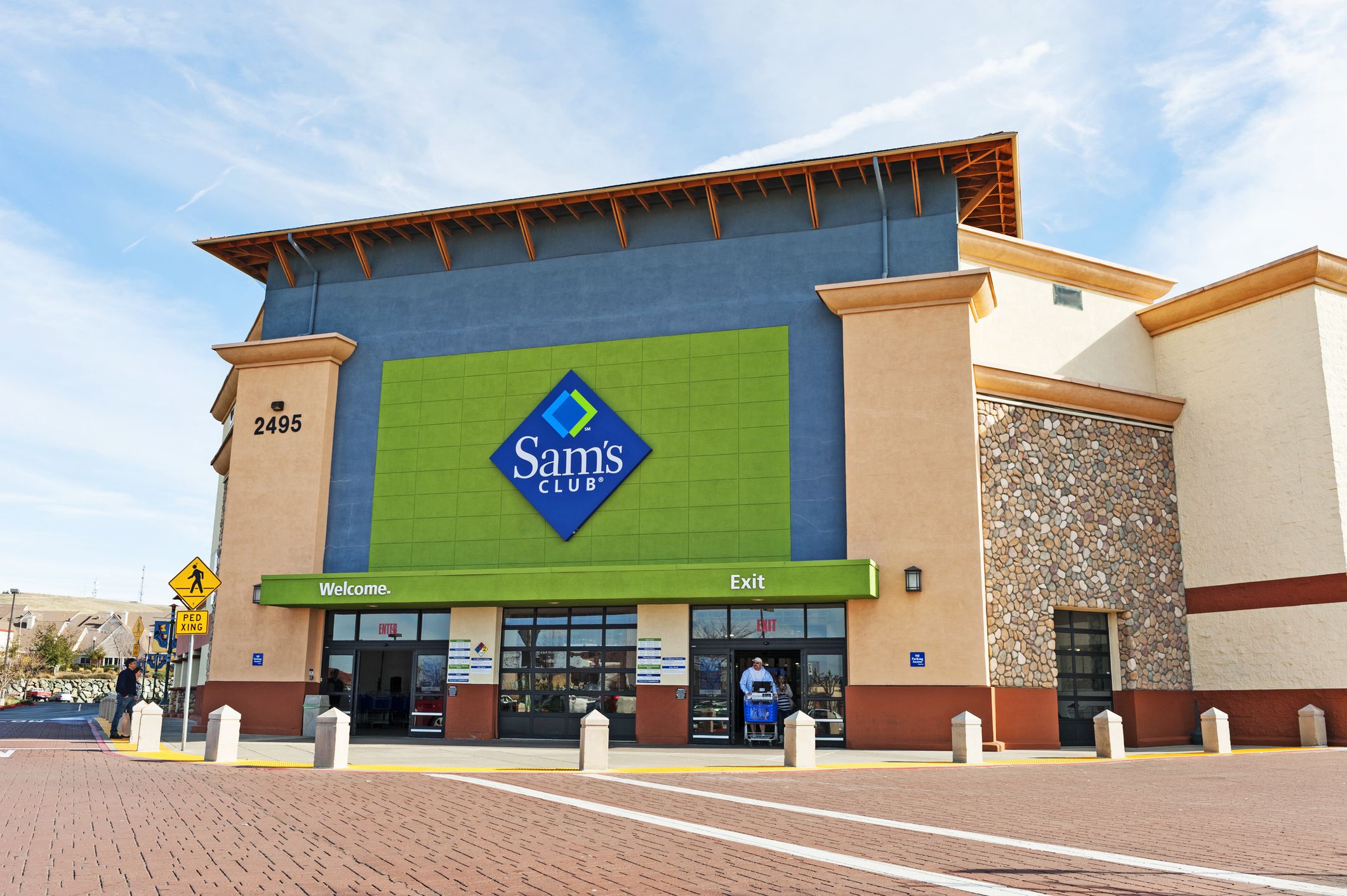
Think of Sam’s Club as Costco’s little sibling. Owned by Walmart, Sam’s offers a $50 annual club membership and a $110 Plus membership that tacks on free shipping and extra Sam’s Cash rewards. The chain leverages Walmart’s purchasing power and uses scan-and-go checkout to keep overhead low.
Pros: Slightly cheaper membership than Costco, additional perks for Plus members, and access to Walmart’s giant distribution network.
Cons: Similar bulk quantities to Costco, and some shoppers find the private-label Member’s Mark products hit-or-miss.
Good For: Shoppers who want warehouse savings but prefer Walmart’s ecosystem and lower entry fee.
Food 4 Less
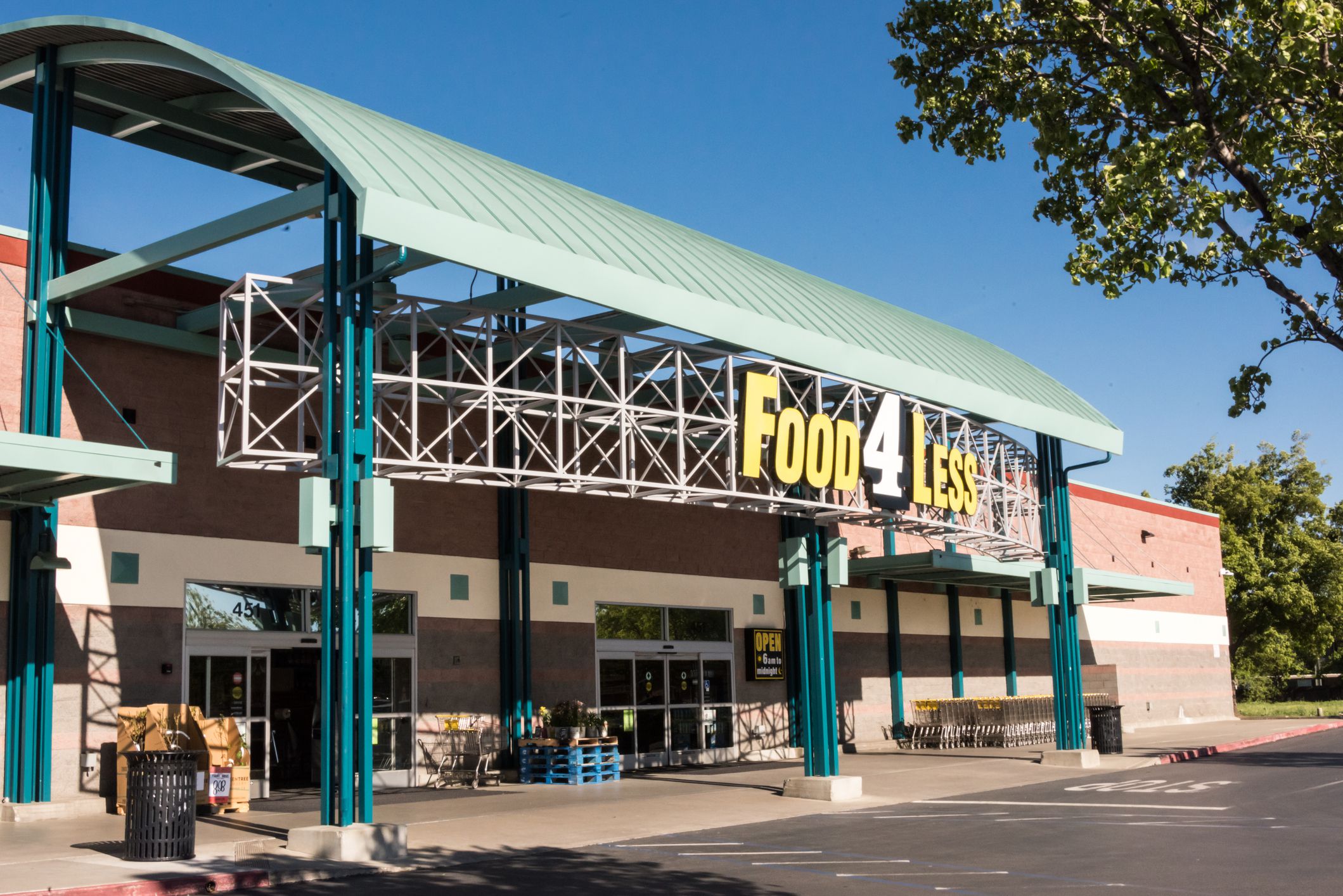
It’s literally written in the name. This no-frills warehouse chain, owned by Kroger, operates around 101 Food 4 Less stores and 20 Foods Co locations in Chicago and Southern California. Shoppers bag their own groceries and mainly choose from Kroger brands like Private Selection and Simple Truth.
Pros: Consistently low prices on produce, canned goods, and basics, plus weekly digital coupons via the Kroger app.
Cons: Sparse store locations, no fancy amenities, and a utilitarian shopping experience.
Good for: Residents in the Midwest or California who don’t care about brand names and appreciate Kroger’s house-brand quality.
Lidl
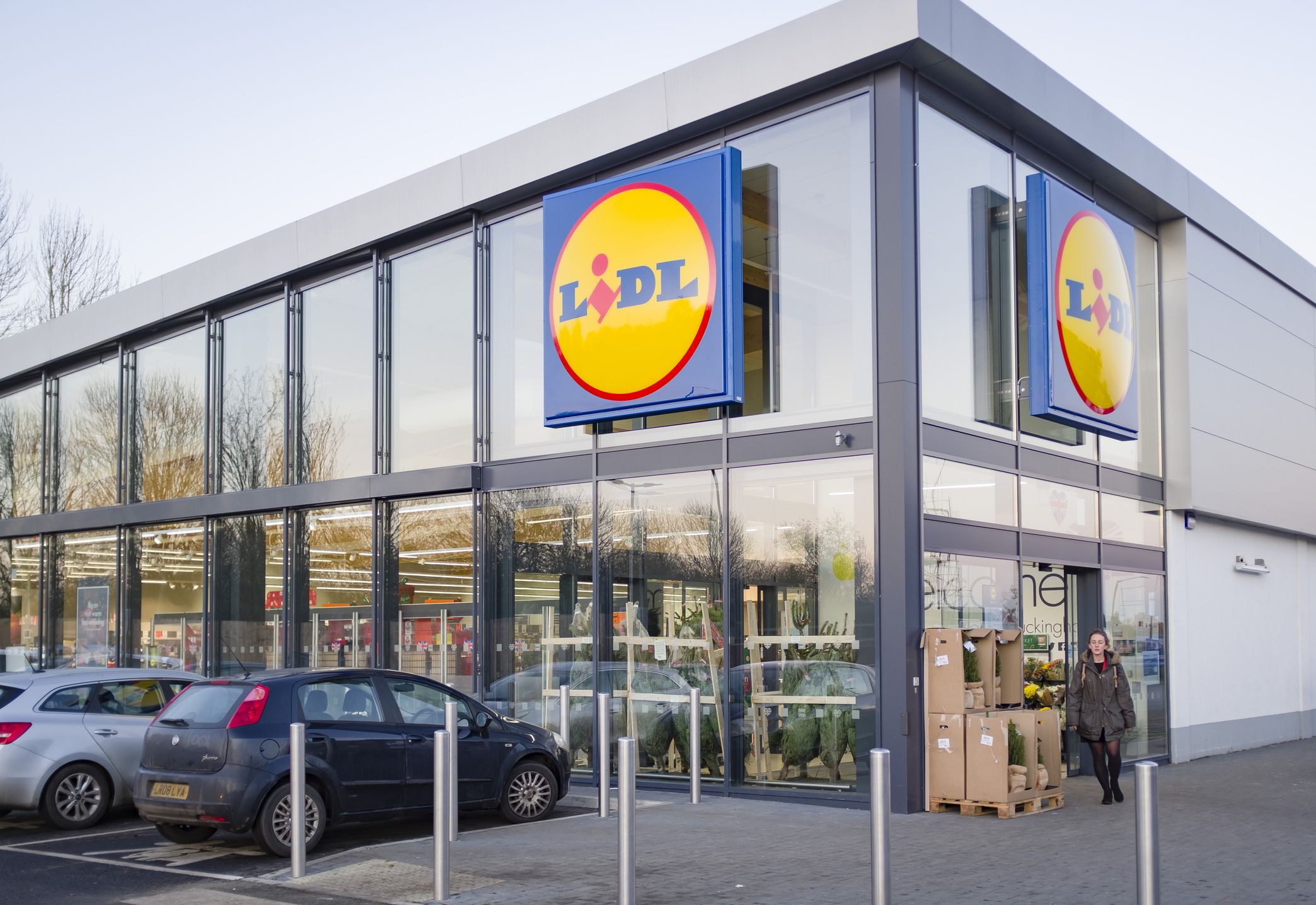
Lidl arrived in the U.S. just a few years ago and already has 170-plus stores across nine East Coast states and Washington, D.C. The chain stocks mainly private-label items, bakes fresh bread daily, and keeps aisles tidy and efficient. It streamlines operations by stocking fewer brands and eliminating tasks like unpacking produce.
Pros: Lower prices and a bakery that rivals those of higher-end grocers.
Cons: Still relatively limited in geographic reach and product variety compared to established supermarkets.
Good for: East Coast shoppers looking for an Aldi-like experience with a European twist.
Trending on Cheapism
Trader Joe’s
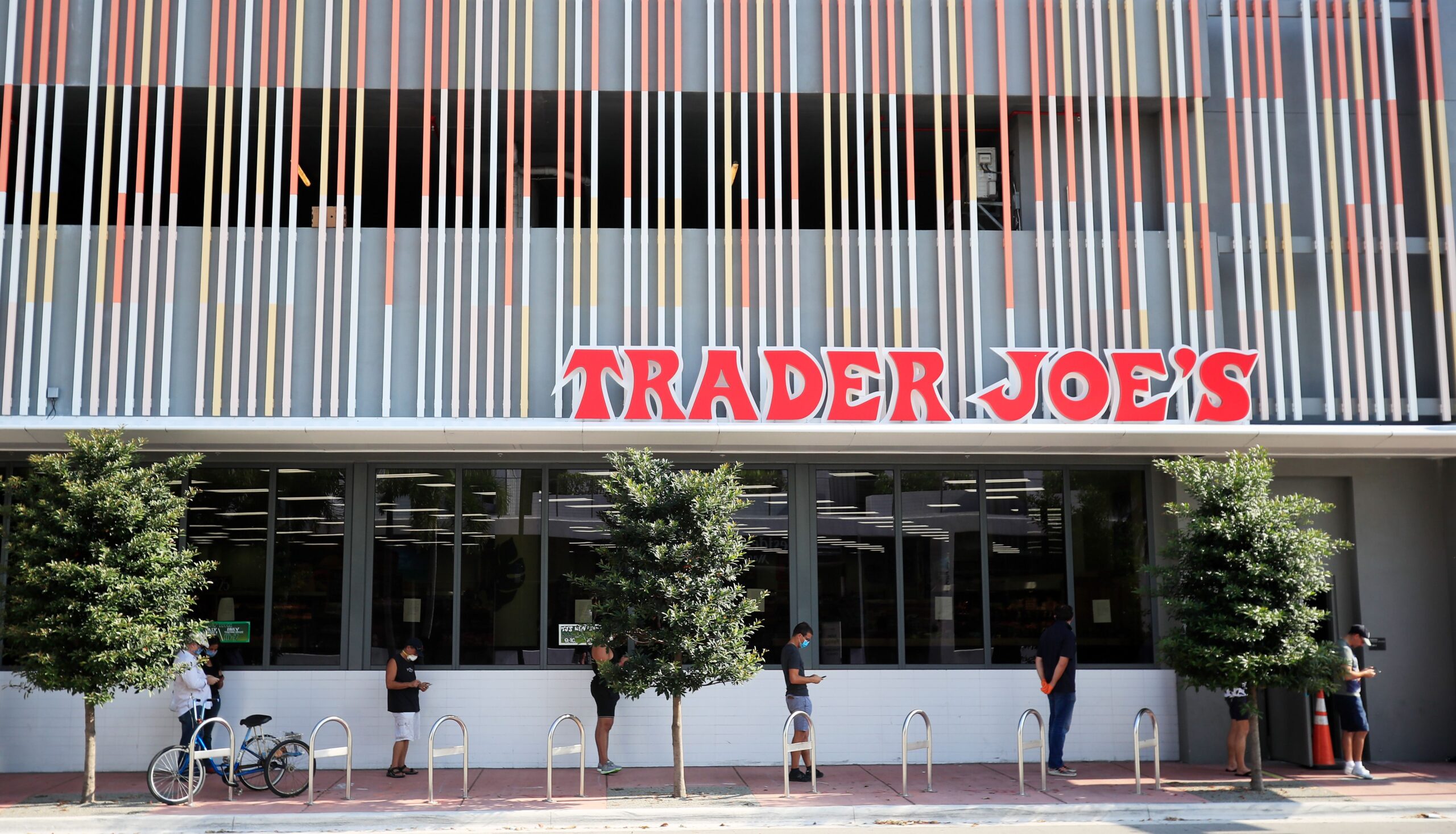
Trader Joe’s isn’t the cheapest place to buy bulk staples, but it excels at affordable specialty items. Nearly every product, from frozen gyoza to cold brew coffee, bears the Trader Joe’s label, which keeps costs down. The chain raises prices only when its costs increase and avoids pricey advertising campaigns. Its generous return policy and cult following are legendary.
Pros: Unique snacks and international foods at reasonable prices, friendly staff, and a fun atmosphere.
Cons: Limited selection of household basics and fresh produce can sometimes be pricier than at discount grocers.
Good for: Shoppers who want to fill their pantries with interesting, high-quality items without paying gourmet prices.
Walmart
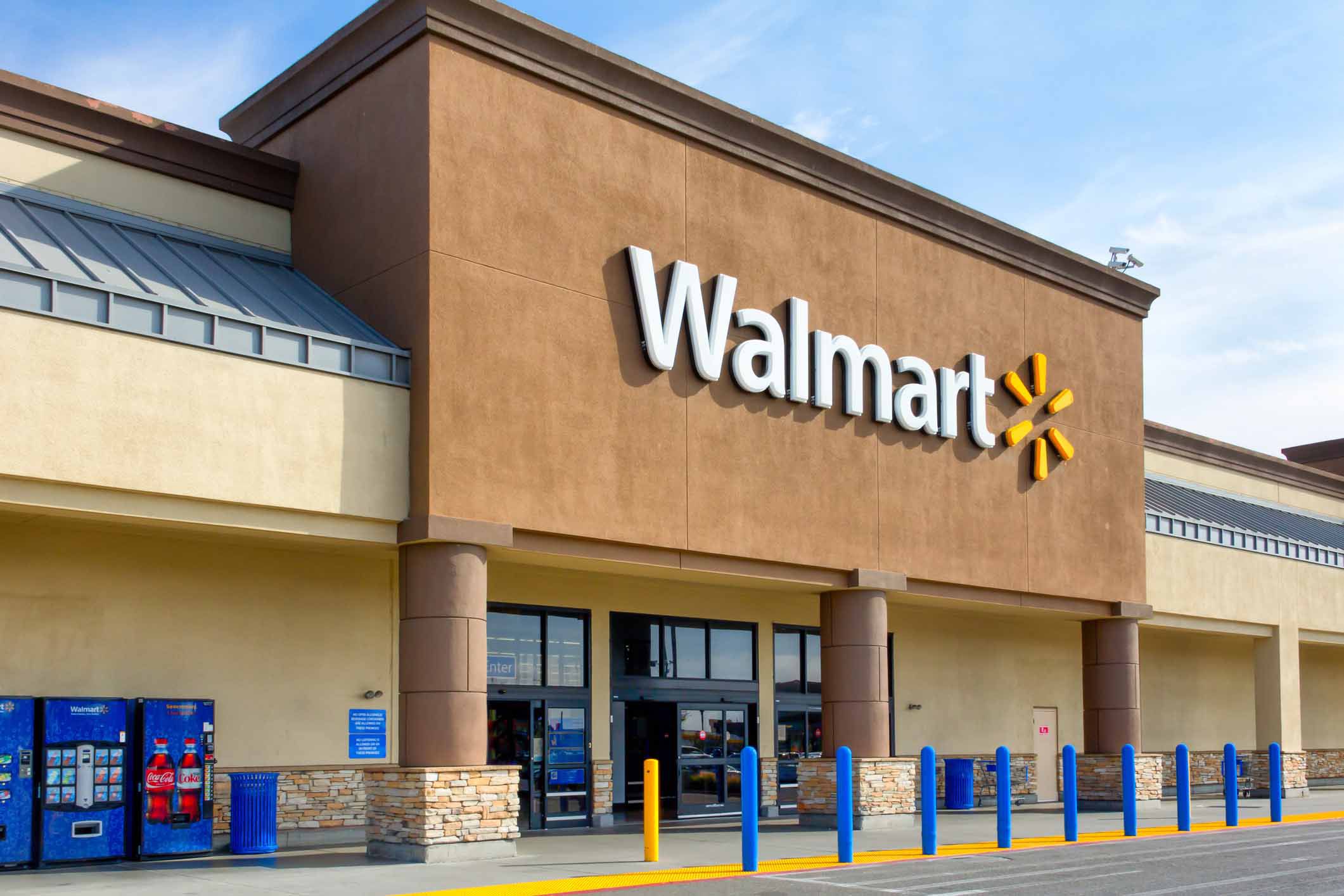
Love it or hate it, Walmart remains a go-to for low prices on everything from socks to salad greens. With national reach and enormous bargaining power, Walmart often matches or undercuts competitors on everyday grocery staples. It also stocks a full pharmacy, electronics, clothing, and more.
Pros: One-stop shopping convenience, aggressive pricing on national brands, and an extensive store network.
Cons: Large stores can be crowded, selection can vary by location, and smaller package sizes sometimes cost more per unit than buying in bulk elsewhere.
Good for: Shoppers who need to grab groceries alongside other household items and value convenience over a curated food experience.
Joe V’s Smart Shop
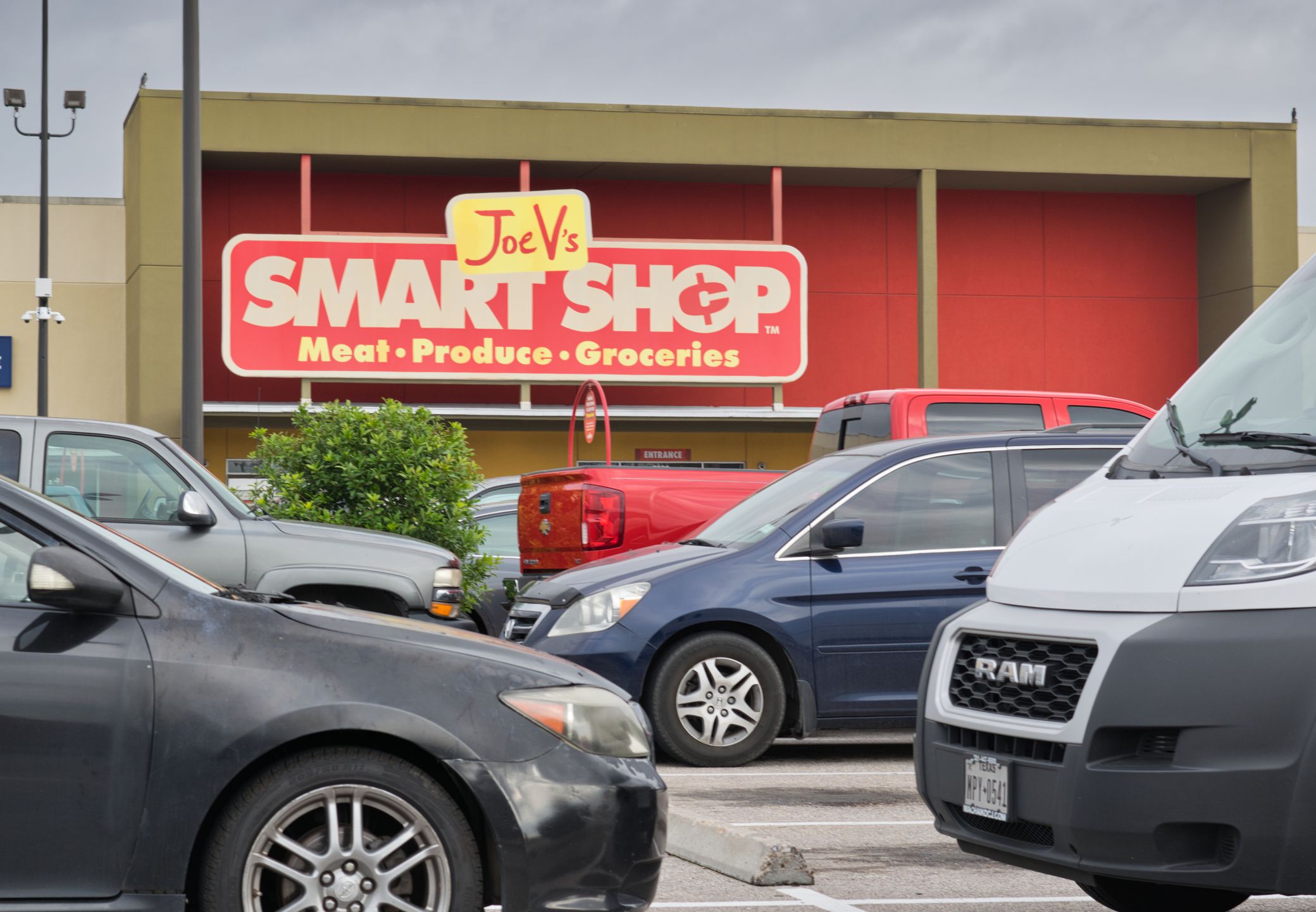
H-E-B launched Joe V’s during the Great Recession to serve budget-conscious Texans. Joe V’s stocks about 9,000 items (versus 37,000 at a typical H-E-B) and runs nine stores in the House area. The model is straightforward: fewer products, no decor, and lower prices.
Pros: Very low prices on meat, produce, and pantry basics; an H-E-B quality selection of private labels in a stripped-down store.
Cons: Only located in Texas and offers far fewer specialty items than a full-size supermarket.
Good for: Houston-area shoppers who want H-E-B quality at a steep discount.
Sign up for our newsletter
Market Basket
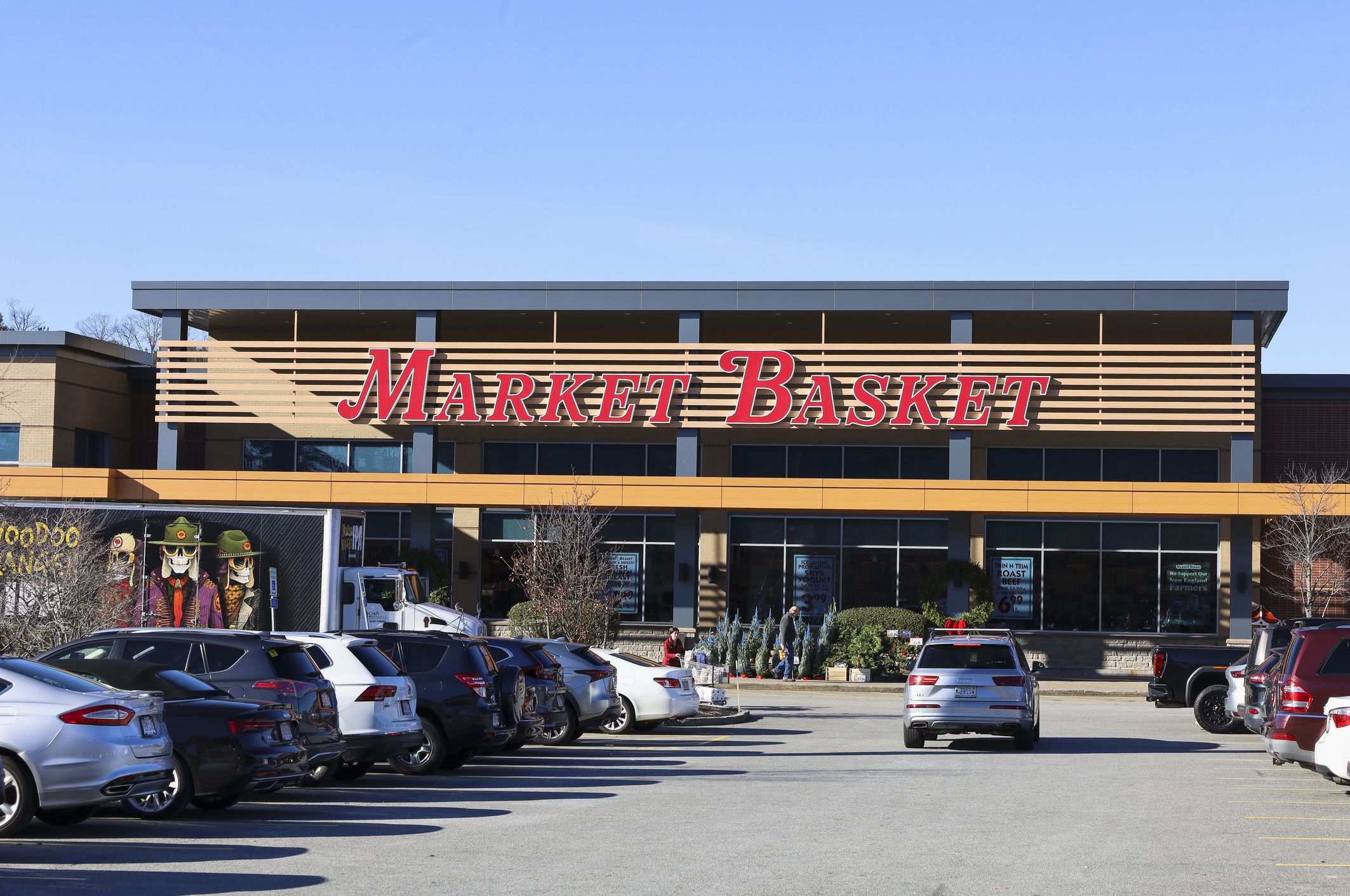
Market Basket has been a New England staple for over a century. The chain keeps costs low by paying suppliers immediately, giving it leverage in negotiations. It also practices high-volume merchandising and forgoes loyalty programs and self-checkout machines.
Pros: Rock-bottom prices on staples and regional specialties like fresh seafood.
Cons: Limited to New England and offers fewer modern conveniences like self-checkout or extensive organic selections.
Good for: Shoppers in Massachusetts, New Hampshire, or Maine who want low prices and don’t mind a traditional grocery experience.
WinCo Foods
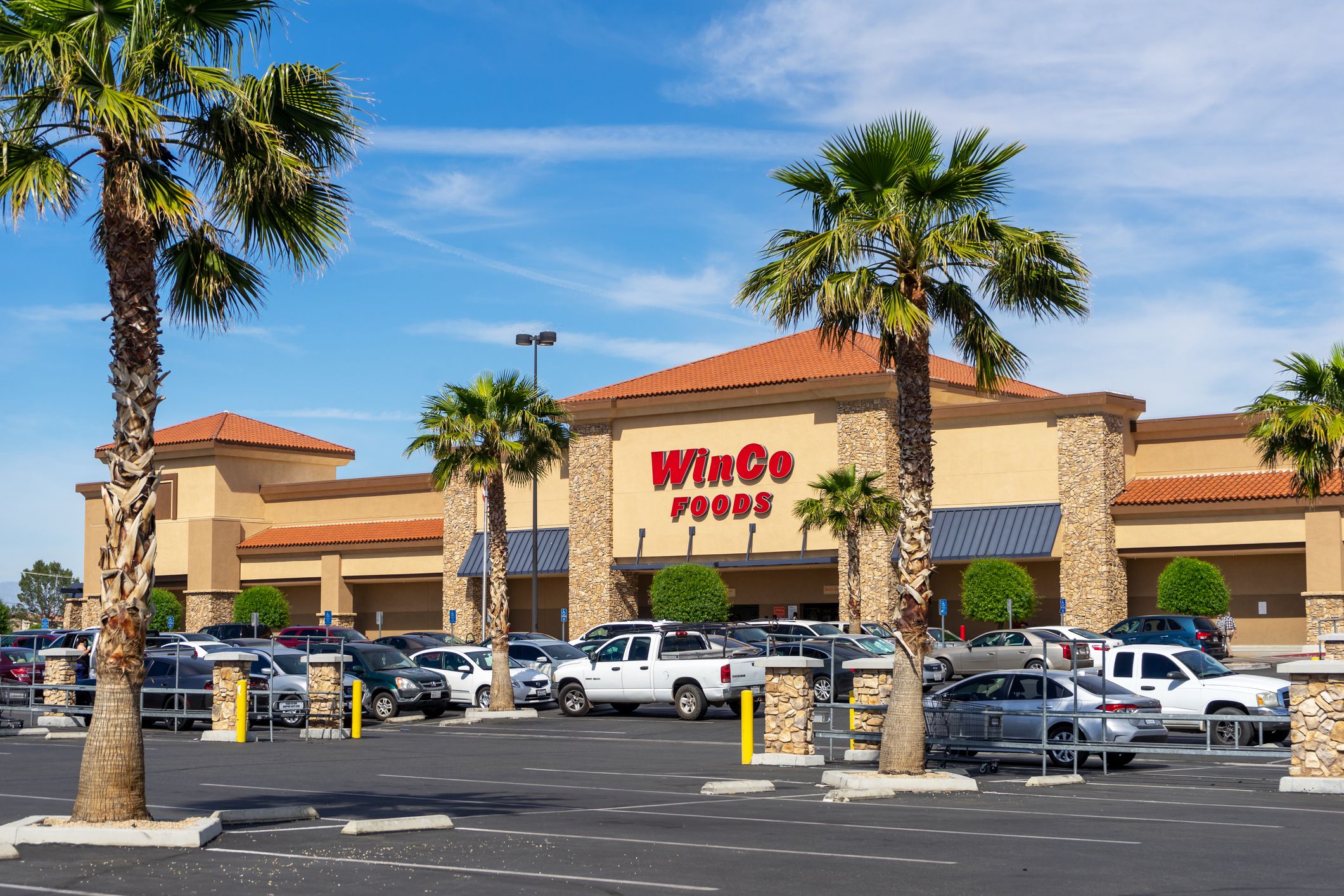
Employee-owned WinCo is beloved on the West Coast and beyond. Workers share in the company’s profits, the stores stock over 800 bulk-bin items, and most locations are open 24/7. Shoppers bag their own groceries and must pay with cash or debit, not credit.
Pros: No membership fee, rock-bottom prices on bulk foods and store brands, and digital coupons for additional savings.
Cons: Limited payment options, minimalist store layout, and fewer national brands.
Good for: Bargain Hunters who like buying in bulk and don’t need a credit card to check out.
Bottom Line

No single grocery store will be cheapest for every shopper, but understanding each chain’s strengths helps you match your needs to the right retailer. Whether you’re feeding a large family, hunting for gourmet snacks, or shopping at odd hours, there’s a budget-friendly grocer out there ready to lighten the load on your wallet.
More Helpful Shopping Tips

- Frugal Shoppers Share Their Favorite Low‑Cost Grocery Stores — Real readers reveal where they find the best deals, from WinCo and Woodman’s to Market Basket and other wallet‑friendly chains.
- Over 35 Store‑Brand Foods That Deliver Quality and Savings — Skip the name brands: these private‑label ice creams, hummus, and pantry staples from Aldi, Costco, and Trader Joe’s taste just as good for far less.
- 35 Tricks That’ll Save You Serious Cash at the Grocery Store — A crash course in budget shopping, from meal planning and coupon stacking to avoiding sales traps that make you overspend.


